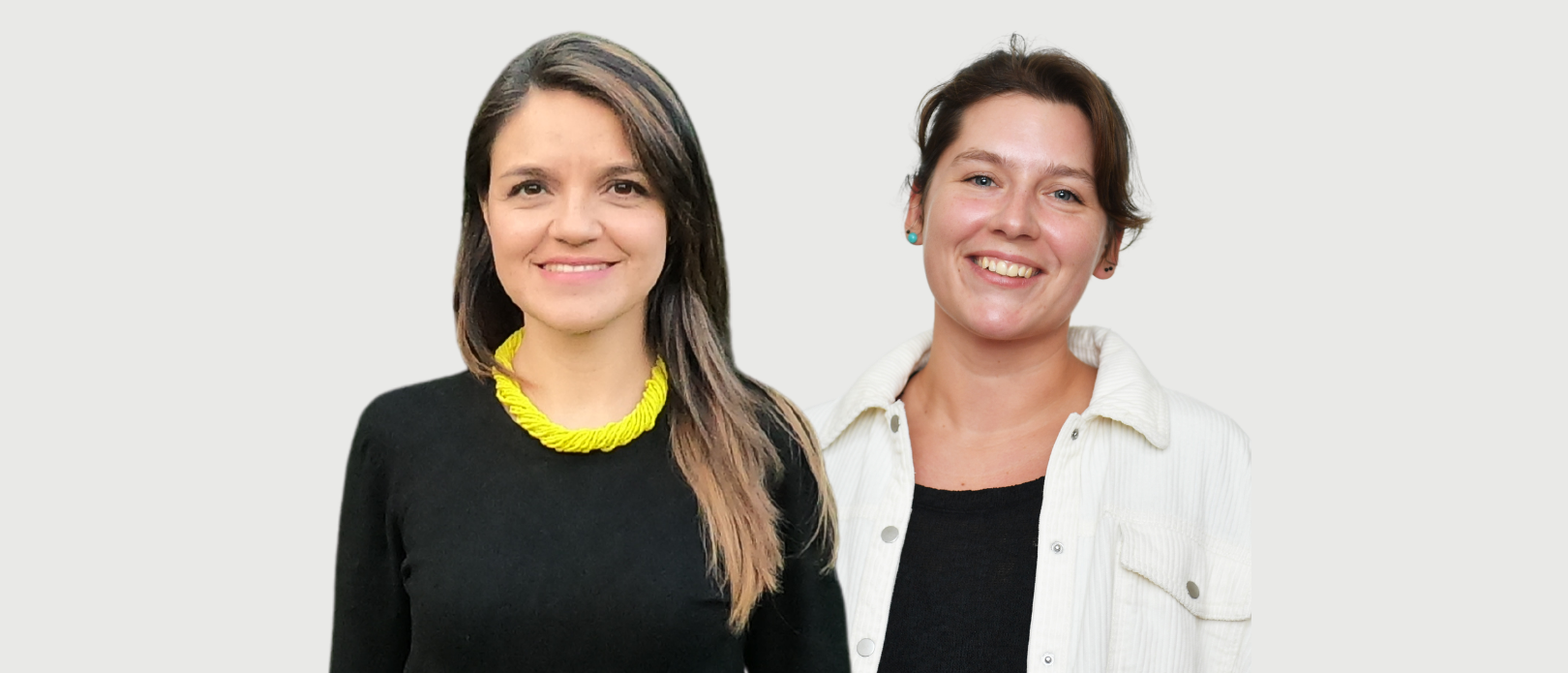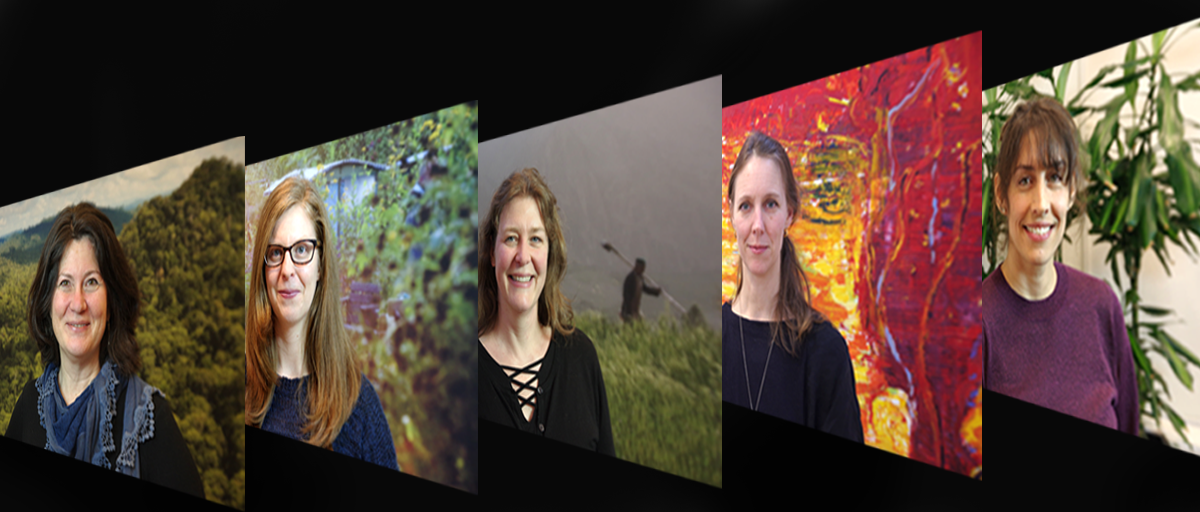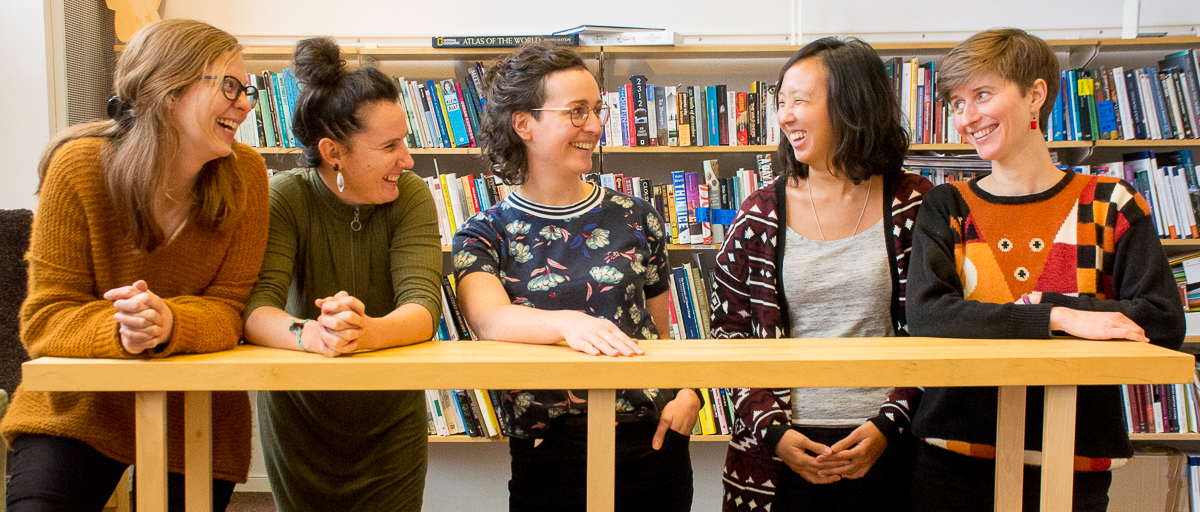WOMEN AND SCIENCE
Want gender equality? Remove the weight of gender expectations

On International Day of Women and Girls in Science we talk to Master’s students Diana Muñoz (left) and Kinga Psiuk, two inspiring women working towards better futures for all people and nature.
On International Day of Women and Girls in Science two of our Master’s students reflect on what needs to change, including in academia
- February 11 marks International Day of Women and Girls in Science
- Despite progress in recent years, women are still held back and many fields are still male-dominated
- We talk to centre Master’s students Kinga Psiuk and Diana Muñoz Duque and explore their experiences: who has inspired them, what needs to change, and how we can do it
Women lead ground-breaking research and make important scientific discoveries central to the future of our planet. They are also on the ground, often in difficult situations, fighting hard for social and political change.
Yet they are still being held back.
On International Day of Women and Girls in Science we talk to Master’s students Kinga Psiuk and Diana Muñoz, two inspiring women working towards better futures for all people and nature.
Together we discuss their experiences: who has inspired them? What needs to change? And how can we do it?
Why is gender equality so important for a sustainable future?
Psiuk: Aiming for a sustainable future by definition means aiming for inclusivity and justice—a future where all people and the planet can thrive. But achieving a sustainable future is not possible when half of the global population still struggles with access to full opportunities or even respect for their human rights.
We don't have to look far. In Poland—my home country—women are fighting for the right to decide about their own body and reproduction, decisions which ultimately determine their livelihood. This is why it is important to think about gender equality as an integral part of a sustainable future. It draws our attention to asymmetries related to power, rights, access, and how those differ across genders and contexts.
To speak of true gender equality we need to stop speaking in dichotomies of biological sex. If we don’t, we risk fighting the same battles in 50 years.
Kinga Psiuk
Women are underrepresented in many of the fields crucial to achieving a sustainable future. How can we change things for the next generation?
Psiuk: I think the process of change for the next generation starts with the recognition that educational institutions are not exempt from the institutionalised system of inequalities. By taking proactive steps they have the power to transform the system, educating critical, open-minded thinkers, and creating equal opportunities. Yet, equal educational opportunities alone are not sufficient. Women need equal job opportunities too and an unbiased recruitment system.
We all have the power to shape which stories are being told and how. We need to acknowledge the challenges of being a woman in science, as well as highlight the many examples of success that can paint a more positive outlook. If we tell a single story of women’s struggle, we run the risk that a story of struggle and victimisation will be the only one remembered by the next generation.
We must also stop portraying certain disciplines as masculine or feminine as this creates gender-based expectations that perpetuate the problem.
The problem with gender is that it prescribes how we should be rather than recognizing how we are. Imagine how much happier we would be, how much freer to be our true individual selves, if we didn’t have the weight of gender expectations.
Author Chimamanda Ngozi Adichie
Research shows that to succeed in fields long dominated by men - like academia - it is vital to raise the visibility of role models for girls and women. Who is your role model?
Muñoz Duque: Exposure to recognized female role models is one way to encourage women and girls to pursue careers in fields that are traditionally male-dominated. However, there are also unseen female role models committed to changing the dominant structures for new generations of girls and women.
As a woman who grew up in a middle-income family in Colombia, pursuing a career has meant facing the unequal gender and socio-economic structures of developing countries.
I have always been supported and inspired by unseen women. My literature teacher, my aunts, my previous bosses, and especially my mother, all of them strong, talented, generous, passionate, and sensitive women taught me about independence, to overcome obstacles by cooperating rather than competing, to explore and learn from different cultures, and not to fulfil social expectations related to gender.
Diana Muñoz Duque
These women inspired me not only to be more ambitious and aim higher when it comes to my professional and personal development, but also to defy prevalent socio-economic and power structures, negative stereotypes, and inequities that have too long defined women in Latin America. They taught us that following our own path is both liberating and empowering.
How do you incorporate gender, feminism or intersectionality into your research, and why are such lenses so important for sustainability research?
Psiuk: Intersectionality allows us to see a more complex picture, avoid simplifications and reduction of cause-effects to simply gender, race, and other demographics. Applying an intersectional lens helps the researcher to avoid this linear thinking by exposing how demographics interact with each other to produce a certain outcome.
One way to incorporate it into research is by intentionally focusing on those intersecting dynamics and allowing them to stir more reflexivity into our research practice. In my current research this means explicitly trying to look for the voices that are usually underrepresented in my topic, reflecting on why they are underrepresented, and what this means.
Personally, I’ve tried to nurture reflexivity and awareness by keeping a reflexive journal during my fieldwork. Now when I am analysing my data I can be more alert to my own biases, my position as a researcher and the power dynamics that were formed when interacting with the people I was working with. Hopefully this helps do justice to the data that I have collected!
What is the biggest change you hope to see in the next ten years?
Muñoz Duque: In rural Latin America and the Caribbean, the livelihoods of rural women rely mostly on local natural resources, which extractive industries and climate change are making increasingly insecure. They face socio-economic inequities that affect their wellbeing, including a lack of income, access to land and credit. They also have limited access to education, health, and are excluded from decision-making.
In addition, women who defend the environment are being threatened, harassed, and sometimes killed. As a consequence, rural, indigenous, and afro-descendant women in developing countries are particularly vulnerable to structural inequalities and climate change.
I believe that to address social environmental and climate change effects we must also solve socio-economic inequities.
I would like to work for a future where societies not only recognize the importance of the role of women in protecting the environment and assuring food supply, but also where local policy and local and scientific knowledge are able to work together to assure rural women access to opportunities and rights to enjoy fulfilled lives.
Diana Muñoz Duque
About the students
Kinga Psiuk is originally from Poland. She grew up mostly in Silesia, but identifies more with Tatra mountains, which is where the other half of her family is from. She moved away from Poland when she was 18 years old, living in London, Berlin and Nijmegen (NL) where she completed her BA in Psychology before coming to Sweden.
She is interested in the relationship between human and nature, how our social identities are shaped by these relationships, and what consequences this has for broader sustainability challenges. Currently, she is exploring how residents from baboon-affected areas in Cape Town, South Africa perceive their relationships with baboons, and what consequences this has for baboon management. In the future she would like to expand on this by understanding how empathy (and other emotions) towards nature can help build more closeness with other beings.
Diana Muñoz Duque is from Colombia, and has an academic background in government, international relations and development studies. Prior to her Master’s at SRC she worked with local, regional, and national NGOs, governments, and the private sector to conduct participatory land planning processes for sustainable rural development. She also conducted research in water governance and has contributed to a book on the topic.
At SRC Diana is interested in the interlinkages between rural development and sustainability from a socio-ecological perspective, and in her research wants to explore transformative solutions for sustainable food production, natural resource management, and poverty alleviation in Latin America. She strongly believes that to address climate change we must also tackle socio-economic inequities, which means that collaborative work between the private sector, government, and academia is critical.








